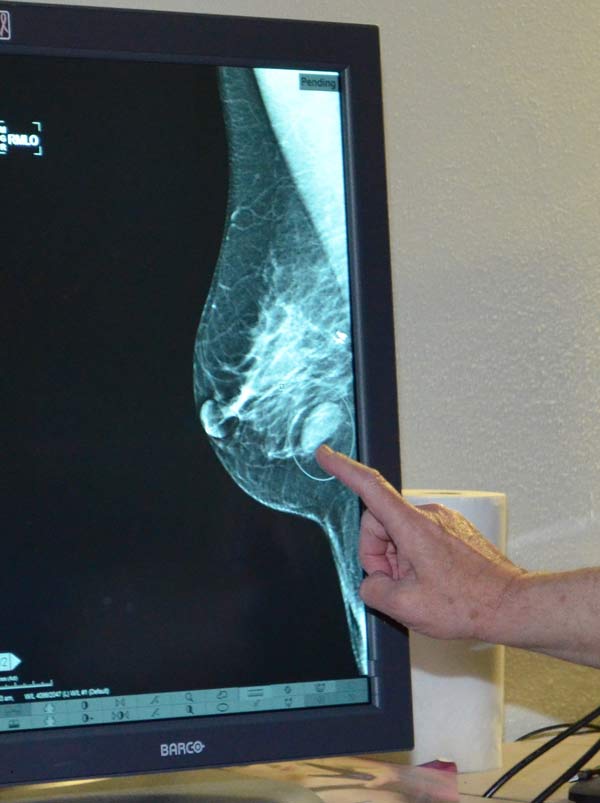 Although detecting breast cancer at its earliest stages is the main goal of routine breast care, other benign conditions, such as fibrocystic breasts or cysts, are often discovered during
routine care. This is why clinical breast exams are important along with patients having breast "self awareness".
Although detecting breast cancer at its earliest stages is the main goal of routine breast care, other benign conditions, such as fibrocystic breasts or cysts, are often discovered during
routine care. This is why clinical breast exams are important along with patients having breast "self awareness".
Breast cancer is the most common type of cancer among women in the United States, other than skin cancer. One out of 8 women will develop invasive breast cancer at some point in their lives.
If you are diagnosed with breast cancer, the most important thing for you to remember is that help is available. For many, early detection and modern therapy with a combination of surgery, radiation, drugs, or hormones now offer good weapons to help beat
the effects of breast cancer.
At UTMB Health, we provide comprehensive care for breast cancer patients. The patient can meet her surgeon, the medical oncologist, radiation oncologist, and plastic surgeon all at the same location, and often all on the same day.